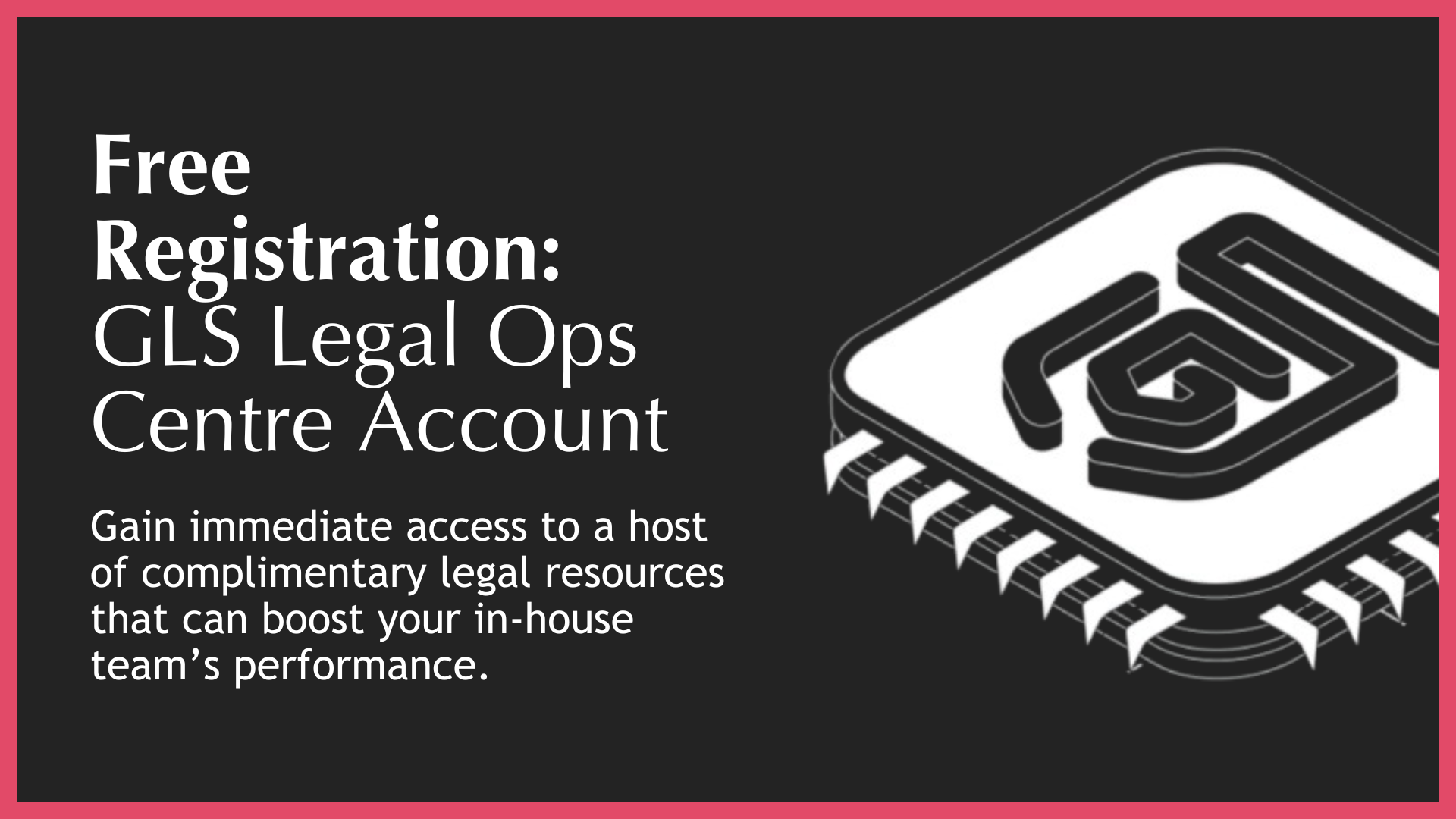The GLS Legal Operations Centre
The ultimate in-house legal department resource stack
Back

Clause Bank
Critical Resource Element
Clause Bank.
What Is It
A Clause Bank is a structured database of authorized clauses that should cover at least 80% of any commercial agreement that a business enters into.
The Clause Bank provides pre-approved, standardized clauses that reflect the organization’s legal policies, compliance requirements, and preferred drafting style.
This tool ensures that contract drafting is faster, safer, and aligned with business objectives, reducing the need for legal teams to draft clauses from scratch.
By using a Clause Bank, legal and business teams can ensure consistency, reduce negotiation time, and minimize contract-related risks.
A Clause Bank is an essential productivity tool for any legal department looking to optimize its contracting infrastructure.
Organizations without a Clause Bank face inconsistent drafting practices, longer contract cycles, increased legal risk, and higher reliance on external counsel.
Scope
The content of your Clause Bank will evolve over time as your contracting function adapts in response to legal, strategic & compliance issues. However, the basic elements of a good Clause Bank will include:
◼️ B.I.L.D. Provisions: clauses covering essential BILD provisions i.e. boilerplate, interpretation, legal risk allocation and definitions
◼️ Definitions: the definitions should be a dictionary of legal terms developed specifically for your business and your industry
◼️ Usage Rules & Training: when and how to use the Clause Bank should be clearly understood by legal team members
◼️ Maintenance Protocol: your Clause Bank will develop over time, this should be conducted in a clear, logical and transparent manner by appropriately authorised personnel
Resource Status
In GLS legal ops, the Clause Bank is considered a "Repeater" resource within legal operations.
A Repeater Resource: Used across multiple legal and business functions, ensuring standardization in contracts, risk management, and compliance enforcement.
A well-maintained Clause Bank reduces contract risk, enhances efficiency, and enables faster contract negotiation.
Best Practice Features
The best practice features of a Clause Bank include:
◼️ Pre-Approved Legal Language: Ensures all clauses align with company policies.
◼️ Centralized Repository: Provides easy access to standardized contract clauses.
◼️ Version Control & Updates: Ensures clauses remain up to date with regulatory changes.
◼️ Modular & Flexible Clauses: Allows customization for different contract types.
◼️ Integration with CLM Systems: Embeds clauses directly into contract lifecycle tools.
◼️ Risk-Based Categorization: Organizes clauses based on risk profiles and approval requirements.
◼️ Search & Retrieval Functionality: Enables quick identification of relevant clauses.
◼️ User Access Control: Restricts modification access to authorized personnel.
◼️ Audit & Compliance Tracking: Monitors clause usage across the organization.
◼️ Training & Adoption Support: Ensures legal and business users understand how to apply the Clause Bank effectively.
Business Value
The Clause Bank delivers significant value to the business:
◼️ Faster Contract Drafting: Reduces time spent on contract creation.
◼️ Reduced Legal Costs: Minimizes reliance on external counsel.
◼️ Risk Mitigation: Ensures contracts adhere to legal and regulatory policies.
◼️ Standardization Across Agreements: Creates consistency in all business contracts.
◼️ Improved Negotiation Efficiency: Streamlines discussions with counterparties.
◼️ Enhanced Compliance: Reduces exposure to legal and regulatory risks.
◼️ Stronger Contract Governance: Ensures contract terms align with corporate policies.
◼️ Increased Legal Team Productivity: Allows lawyers to focus on strategic tasks.
◼️ Greater Business-Legal Alignment: Ensures commercial teams use legally sound clauses.
◼️ Data-Driven Contracting Decisions: Provides insights into contract trends and risk exposure.
Legal Department Value
The Clause Bank provides the following benefits for the legal department:
◼️ Consistent Drafting Standards: Eliminates clause variability across contracts.
◼️ Reduced Review & Approval Time: Speeds up contract negotiation and execution.
◼️ Lower Contracting Risks: Ensures legally vetted language is consistently applied.
◼️ Optimized Legal Workflows: Automates contract clause selection.
◼️ Easier Compliance Monitoring: Ensures adherence to company policies and regulations.
◼️ Improved Institutional Knowledge Retention: Reduces reliance on individual expertise.
◼️ Seamless Integration with Contract Templates: Embeds clauses into standard contracts.
◼️ Greater Negotiation Leverage: Ensures pre-approved positions are maintained.
◼️ AI & Automation Readiness: Supports integration with AI-powered contract tools.
◼️ Stronger Legal Department Efficiency: Maximizes legal team capacity by reducing manual drafting efforts.
Who Needs It
A Clause Bank is essential for:
◼️ Legal Teams: To ensure contract consistency and risk management.
◼️ Contract Managers: To streamline contract creation and approval.
◼️ Procurement & Sourcing Teams: To standardize vendor agreements.
◼️ Sales & Commercial Teams: To ensure compliance in customer contracts.
◼️ Finance & Risk Officers: To monitor financial obligations and risk exposure.
◼️ Compliance Officers: To enforce regulatory adherence.
◼️ Operations Teams: To align contract execution with business requirements.
◼️ Legal Operations Teams: To integrate clause management with contracting workflows.
◼️ Senior Executives: To oversee strategic contract governance.
◼️ External Legal Counsel: To align external drafting with internal legal policies.
Productivity Consequences
A business that does not implement a Clause Bank will face:
◼️ Inconsistent Contract Drafting: Clause variations create legal and operational risks.
◼️ Longer Contract Cycles: Increased time required for legal review and approval.
◼️ Higher Legal Costs: More frequent reliance on external counsel.
◼️ Greater Compliance Risks: Difficulty ensuring contracts meet regulatory standards.
◼️ Inefficient Contract Management: Lack of standardization slows down workflows.
◼️ Increased Contract Disputes: Unclear or inconsistent clauses lead to legal challenges.
◼️ Limited Negotiation Leverage: No pre-approved positions lead to unfavorable contract terms.
◼️ Loss of Institutional Knowledge: Key legal insights are not captured in a structured system.
◼️ Reduced Business-Legal Collaboration: Business teams struggle to find the right clauses.
◼️ Inability to Scale Contracting Operations: Contract growth strains legal resources without standardization.
Tech Implications
Implementing a Clause Bank requires consideration of the following technology solutions:
◼️ Integration with CLM Systems: Ensuring seamless clause insertion into contract workflows.
◼️ AI-Driven Clause Recommendations: Automating clause selection based on contract type.
◼️ Cloud-Based Accessibility: Allowing secure, remote access to the clause repository.
◼️ Version Control & Approval Workflows: Managing clause updates and approvals.
◼️ Search & Indexing Features: Enabling fast retrieval of relevant clauses.
◼️ Risk-Based Clause Categorization: Assigning clauses to risk levels for easy selection.
◼️ Automated Compliance Audits: Tracking clause usage across the organization.
◼️ User Access Management: Restricting modifications to authorized personnel.
◼️ Integration with Document Automation Tools: Allowing automated contract assembly.
◼️ Scalability & Future-Proofing: Ensuring adaptability as contracting needs evolve.
What Next?
The GLS Knowledge Centre has a wealth of resources available for learning more about the importance of a Clause Bank and how you can effectively implement one - check out a few on the right.
The GLS Legal Operations Centre contains everything you need to effectively implement your own tailored Clause Bank in a cost-effective and timely manner. Check out the resources linked on the right.
Also, feel free to contact GLS to book a consult to discuss your Group Legal Policy needs right here.


